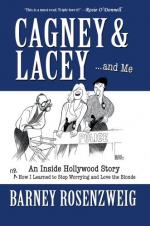|
This section contains 294 words (approx. 1 page at 300 words per page) |
The arrival of Cagney and Lacey in 1982 broke new and significant ground in television's ever-increasing proliferation of popular cop series in that the stars were women—a pair of undercover detectives out there with New York's finest, unafraid to walk into the threat of violence, or to use a gun when necessary. Effectively, writers Barney Rosenzweig, Barbara Avedon and Barbara Corday offered audiences a female Starsky and Hutch, cleverly adapting the nuances of male partner-and-buddy bonding to suit their heroines. Although jam-packed with precinct life and crime action, the series was character driven, with careful attention given to the private lives of the two detectives, sharply contrasted for maximum interest in both the writing and the casting. Mary Beth Lacey, dark-haired, New York Italian working-class, combined her career with married life and the struggle to raise her children; Christine Cagney, more sophisticated, more ambitious, single, blonde, and very attractive, struggled with a drinking problem. The relationships between them and their male colleagues were beautifully and realistically brought to life by Tyne Daly and Sharon Gless, respectively. Gless was a late addition, brought in to counter criticisms that the show was too harsh and unfeminine: Loretta Swit had played Cagney in the pilot, followed by Meg Foster in the short first series, which failed to find favor in its depiction of women in so unglamorous a context. However, with Gless in tow, the show's treatment of female solidarity and hard-hitting issues won the CBS show a huge popular following, and lasted for seven seasons until 1988.
 Sharon Gless (left) and Tyne Daly in a scene from the television movie Cagney and Lacey: The Return.
Sharon Gless (left) and Tyne Daly in a scene from the television movie Cagney and Lacey: The Return.
Further Reading:
Fiske, John. "Cagney and Lacey : Reading Character Structurally and Politically." Communication. Vol. 9, No. 3/4, 1987, 399-426.
|
This section contains 294 words (approx. 1 page at 300 words per page) |


